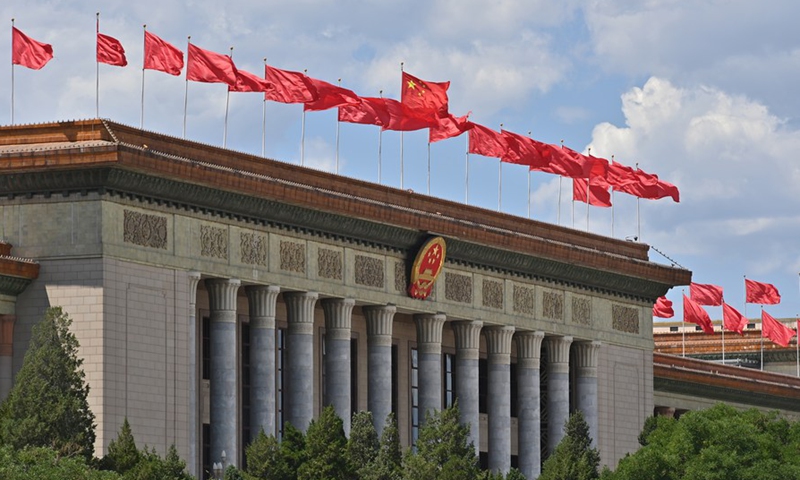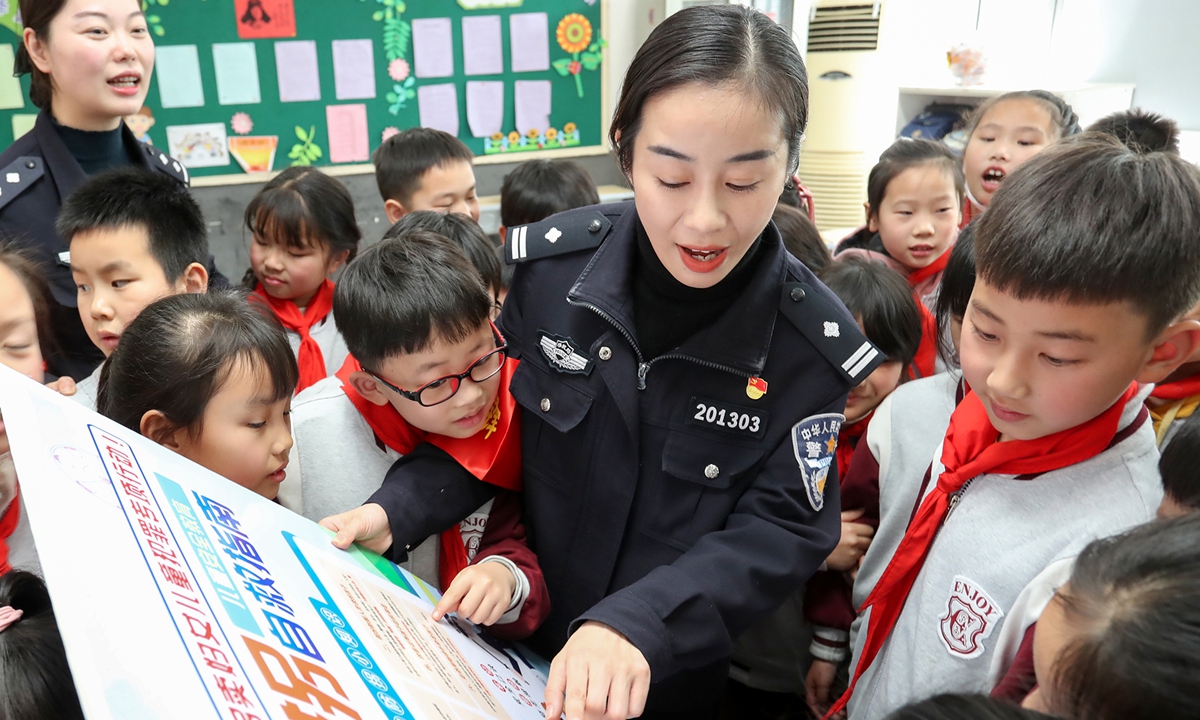
Two Sessions Photo:Xinhua
China's top court and top procuratorate on Tuesday delivered their work reports at the ongoing two sessions, emphasizing the protection of women and children, an issue that has garnered much attention at the annual legislative and political consultative sessions, where lawmakers and political advisors have also made suggestions or proposals to crack down on human trafficking.
Zhou Qiang, president of the Supreme People's Court (SPC), and Zhang Jun, procurator-general of the Supreme People's Procuratorate (SPP), delivered the work reports at the ongoing fifth session of the 13th National People's Congress (NPC).
Zhou stated that for crimes that challenge the bottom line of the law and ethics, such as those harming women, children and the elderly, the death penalty shall be approved in line with the law.
In 2021, the SPC issued 3,356 restraining orders to protect victims of domestic violence, enhance work on family education, and strengthen the protection of soldiers and their families.
The court also handled cases involving the infringement of the reputations of heroes and martyrs, Zhou said.
Zhou also vowed severe punishments for sexual abuses and the trafficking and purchasing of women and children in 2022.
Zhang said in the SPP's work report that the prosecution of human trafficking will continue to be strict, pledging to solve
long-pending cases and take a tough stance in prosecuting suspects involved in human abducting and trafficking.
Delivered on International Women's Day on Tuesday, both reports emphasized the protection of women's rights and drew widespread public support, following a controversial trafficking case that exposed the necessity of continuous efforts in this area.

A female police officer promotes anti-trafficking information to students in an elementary school in Wuxi, East China's Jiangsu Province on March 7, 2022. Photo: VCG
At the ongoing two sessions, lawmakers and political advisors have also made various suggestions and proposals to tackle the issue, including setting up a
nationwide DNA database to help identify abducted women and children.
Liu Hongyu, a member of the Chinese People's Political Consultative Conference (CPPCC) National Committee, said that if DNA information is compulsory for household registration, or hukou, the buyer won't be able to file relevant documents for the trafficked person, which could help solve this thorny problem.
Qi Mei, an NPC deputy, proposed to raise the penalties for buyers of abducted women and children regardless of their treatment of the abducted, to increase the costs of crime and deter potential buyers.
Big data and artificial intelligence should also be used to eradicate the buyer's market and make it a social consensus to crack down on and report human trafficking, lawmakers said.
The Ministry of Public Security has launched
a nationwide campaign that will run to the end of 2022 to crack down on the trafficking of women and children. As new cases are dropping notably, observers said it is important to probe past cases, and to rescue and resettle the victims.
Yu Maoyu, deputy head of the SPC's general office, told reporters that handling cases of high public attention is not only about intrinsic rights and wrongs, but also an "open legal class" for the public, setting values and rules that society should embrace.
"People's courts should not only administer justice but also respect people's primary concepts of fairness and justice," Yu said.
The SPC's work report cited several cases that have had a profound social impact, including those involving
smearing the reputation of late agricultural scientist Yuan Longping and
defacing martyrs' tombstones.
The SPP also raised public prosecutions affiliated with civil prosecutions for cases jeopardizing heroes' and martyrs' reputations. It also enhanced the protection of soldiers and their families, firmly guarding national defense interests.
Zhou stressed that crimes jeopardizing national security, such as those inciting the subversion of state power, espionage and secret cults, as well as those hampering public order, are severely punished.
He pledged to firmly defend national sovereignty amid foreign long-arm jurisdiction.
Observers noted that the two work reports highlighted the direction of the nation's judicial work as being people-centered. The concept is not abstract, but it is manifest in cases and data, and the core is to let everyone feel that justice is done and fairness is observed.
Amid rising crimes concerning the internet, the top judicial authorities also strengthened work to crack down on relevant cases, including internet fraud, infringement of personal privacy and rumor-mongering that jeopardized citizens' reputations.
The SPC work report revealed that background checks were conducted for 7.5 million people in industries that have close contact with minors in 2021, and 2,900 people were sacked for having bad records, ruling out safety risks around children.
The SPP advised the prosecution of guardians or revocation of guardianship in 758 cases, up 47.8 percent from the previous year, and signed 190,000 orders urging better care for children, to protect children from abuses.





